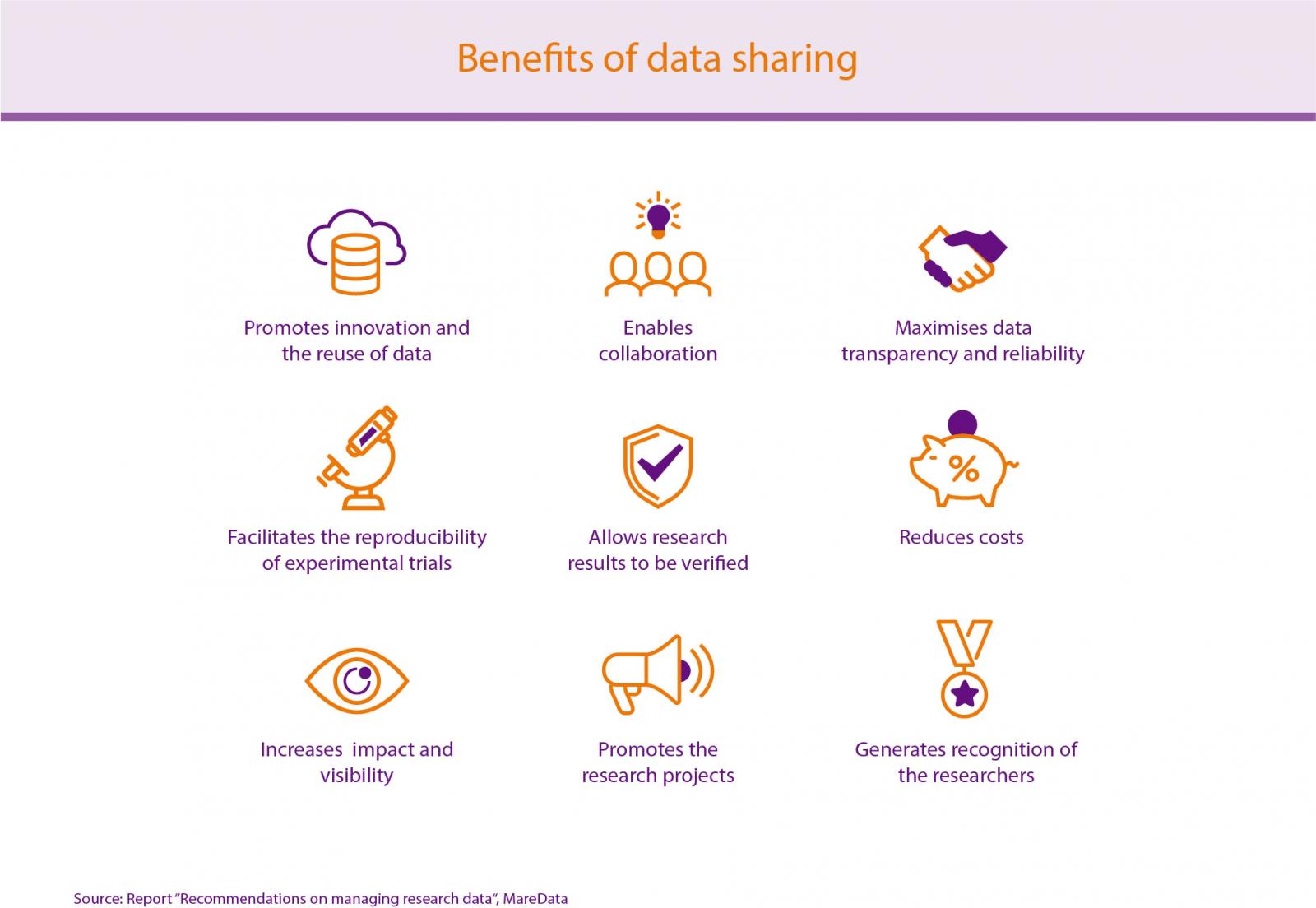
MareData is a thematic network funded by the Spanish Ministry of Economy and Competitivity, created and is managed by seven research groups from various institutions: Institute of Agrochemistry and Food Technology-CSIC, Institute of Management of Innovation and Knowledge-CSIC, Universidad de Alicante, Universitat de Barcelona, Universidad Carlos III de Madrid, Universitat Oberta de Catalunya and Universitat Politècnica de València.
The objectives of the network include promoting research as a fundamental basis of open science, promoting good practices in the management of research data. In this way, MareData seek to achieve a more responsible, transparent and accessible science for all researchers who want to reuse information, as well as for citizens in general.
In this sense, last December, MareData published a report with a series of general recommendations addressed to researchers when dealing with the management of their research data. The document is conceived as a series of guidelines for each researcher or research group to be guided in the creation of data management plans, in accordance with the European Commission programme for the opening of data deriving from EU-funded projects in the framework of H2020. This (optional) recommendation is also included for projects financed under the Spanish Research Plan.
Below we detail the main reflections and recommendations included in this document
The importance of sharing and reusing research data
Universal access to knowledge is a subject of great importance treated in various mandates and initiatives, but what are the main reasons for sharing this type of information?
One of the main reasons given by MareData is that sharing data promotes innovation and reuse of data which could have new applications at a lower cost, simplifying the collaboration among data users, creators and reusers. In addition, it facilitates the transparency and reliability of the investigation, allowing research results to be verified in a simpler way.
Another advantage is that it facilitates the dissemination of research, increasing its impact and visibility.

But to achieve these results it is necessary to share data in a way that guarantees its quality and interoperability. Data produced by scientific research are very heterogeneous due to the diversity of disciplines and scientific methods. Good data management must include criteria, principles and standards that make the data intelligible not only within their domain or discipline, but also interdisciplinarily. This is where MareData recommendations can help the most.
Recommendations for data management
MareData has defined 17 action points to help optimize data management in the research sector:
- Adopt the FAIR Guiding Principles (Findable, Accessible, Interoperable, and Reusable) and facilitate open, legal and reusable scientific production.
- Choose those data that are interesting for future uses. Sometimes it is not necessary to preserve all the data generated during a research project.
- Apply FAIR principles to the metadata and the data management plan.
- In the project evaluation reports, describe the benefits and advantages of ha-ving made the research data FAIR.
- Develop a data management plan (PGD) to help plan, organize and document how data will be obtained and managed within the framework of the research project.
- Indicate in the data management plan whether existing data have been consulted or reused instead of finding them again (avoid redundancy).
- Use interoperable standards with the FAIR data ecosystem to enable interoperability among systems.
- Make research data available in line with the standards recognised by the par-ticular scientific community.
- Use open licenses as far as possible to facilitate reuse of the research data.
- Provide a detailed description of the conditions for reproducing experimental trials.
- Identify the repository that is most suitable for depositing your data. Analyse discipline-specific repositories as a source of data for consultation and for help on how to make the deposit.
- Check the policy terms or requirements regarding your research data. Fun-ding agencies, research centres and universities and, increasingly, scientific journals, have their own policies on research data.
- Promote the citation of datasets as any other bibliographic resource.
- Follow appropriate and internationally recognised living beings codes of conduct. If data refer to people, you should safeguard privacy and comply with the legislation in force in this regard.
- Contribute to the dissemination and sharing of good practices among your scientific community with respect to data management and lessons learned.
- Foster collaboration among professionals in the field and data and information managers in preparing and taking part in training programmes.
- Encourage researchers and the centres they work for to endorse the paradigm of open science.
In addition to these 17 recommendations, MareData includes, for each of them, practical advice for researchers, such as consulting their academic and research libraries during this process. Following these recommendations and advice from Maredata will encourage research data to be more findable, accessible, interoperable and reusable. As a consequence, researchers work will be easier.